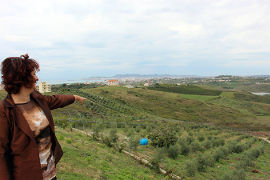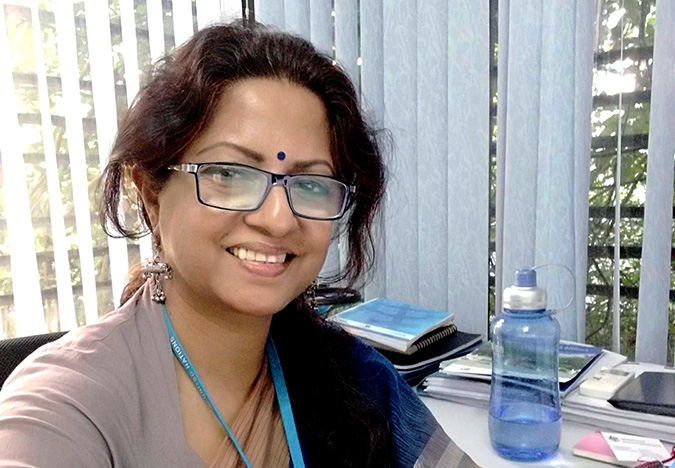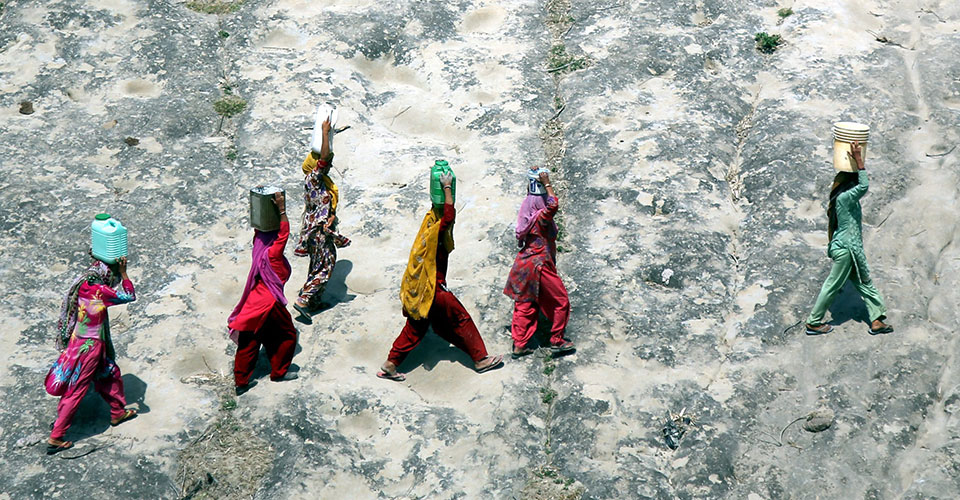SDG 13: Take urgent action to combat climate change and its impacts
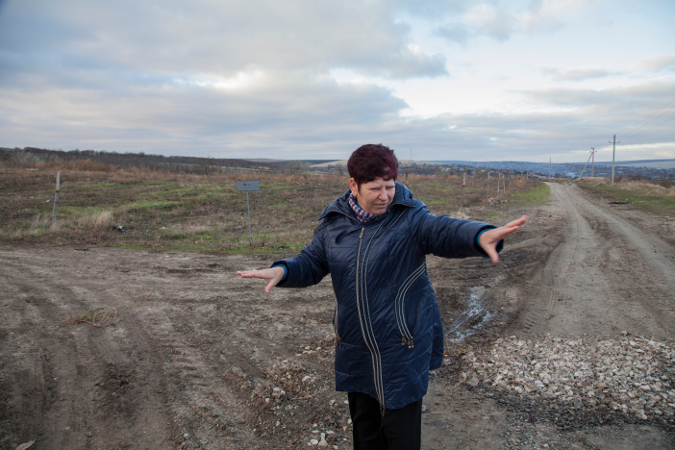
Targets
- Promote mechanisms for raising capacity for effective climate change-related planning and management in least developed countries and small island developing States, including focusing on women, youth and local and marginalized communities.
- Strengthen resilience and adaptive capacity to climate-related hazards and natural disasters in all countries.
- Integrate climate change measures into national policies, strategies and planning.
- Improve education, awareness-raising and human and institutional capacity on climate change mitigation, adaptation, impact reduction and early warning.
- Implement the commitment undertaken by developed-country parties to the United Nations Framework Convention on Climate Change to a goal of mobilizing jointly USD 100 billion annually by 2020 from all sources to address the needs of developing countries in the context of meaningful mitigation actions and transparency on implementation and fully operationalize the Green Climate Fund through its capitalization as soon as possible.
Note: Acknowledging that the United Nations Framework Convention on Climate Change is the primary international, intergovernmental forum for negotiating the global response to climate change.
Climate change, caused by human activity, poses growing risks to people and the environment. Rising temperatures have made storms and droughts more severe. Catastrophic storms destroy lives and homes. Sea level rise threatens low-lying areas. Women and children bear much of the brunt, being 14 times more likely than men to die during a disaster.
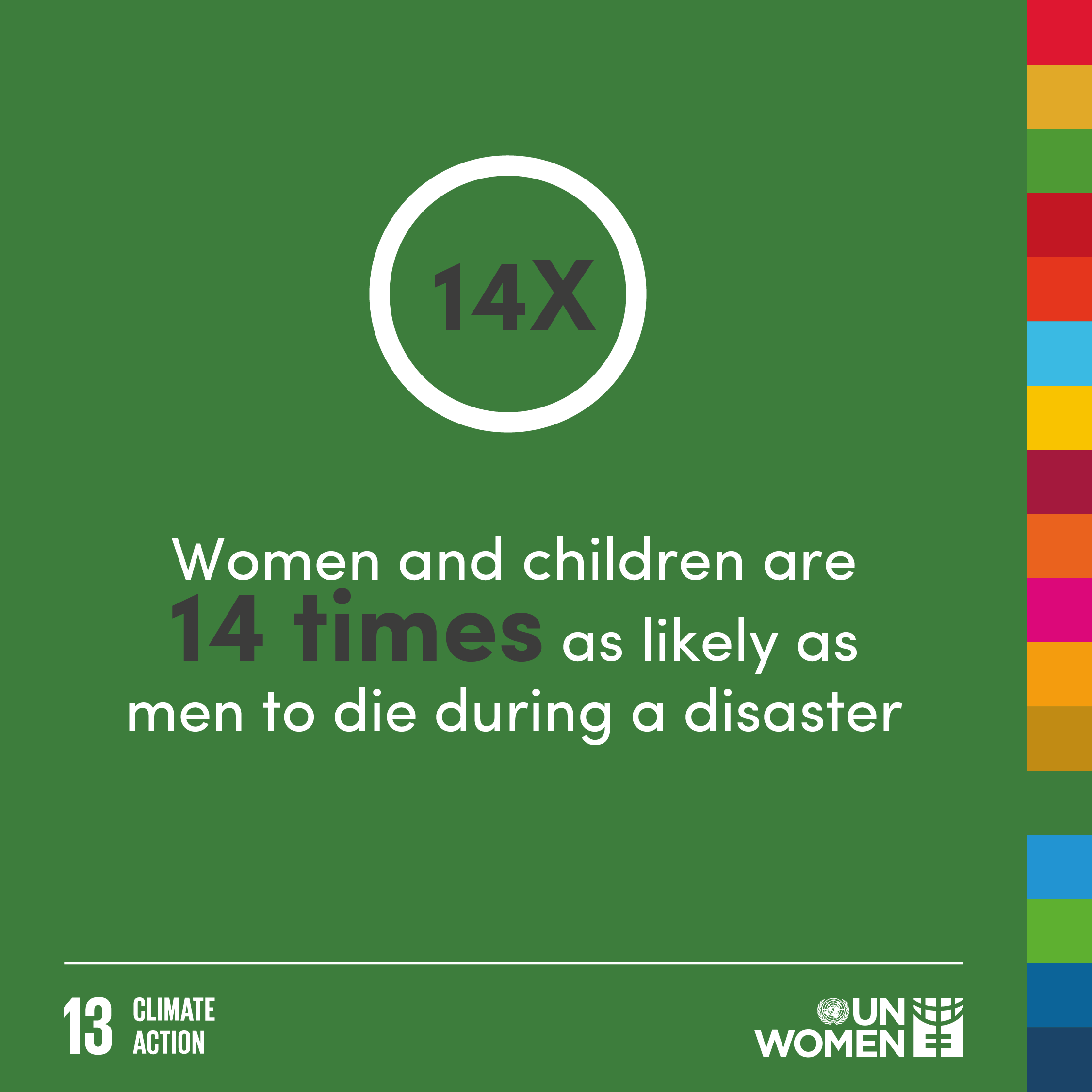
Globally, one fourth of all economically active women are engaged in agriculture, where they must contend with climate consequences such as crop failure. Often they have fewer resources, such as irrigation and technology, to cope. This is particularly relevant in Central and Southern Asia, where nearly 60 per cent of employed women are in the agricultural sector. By 2050, wheat production may fall by 49 per cent in South Asia and 36 per cent in sub-Saharan Africa. Lower yields mean a drop in income as well as a scarcity of food, with the risk that women and girls will be the first to eat less. Other pressures come from their disproportionate responsibilities for collecting increasingly scarce water and fuel.
Through their experiences and traditional knowledge as stewards of many natural resources, women can offer valuable insights into better managing scarce resources and mitigating climate risks. They also have a right to all capacities needed to adapt to climate shifts, and to participate in decisions with profound implications for people and the planet.
UN Women acts to combat climate change by advocating for gender equality and women’s empowerment in all efforts, including global climate talks, to mitigate and adapt to it. To reduce the number of women impacted by disasters, we promote disaster-risk reduction planning and training to help women become more resilient and informed.
Stories
Across the Western Balkans, rural women are influencing local budgets and shaping progress
In Albania, Bosnia and Herzegovina, former Yugoslav Republic of Macedonia and Moldova, UN Women is working with governments to implement gender equality commitments and women’s participation in decision-making. With the help of a subsidy scheme, Gentiana Sinjari installed a drip irrigation system essential for her crops’ survival in the face of climate change, and Zilha Kureševic from Bosnia and Herzegovina, who lost her job as an accountant and was looking for ways to feed her family, started cultivating strawberries with the help of an agricultural scheme.
Expert’s take: When building climate resilience, women’s needs cannot be an afterthought
Dilruba Haider, a Programme Specialist on Disaster Risk Reduction, Climate Change and Humanitarian Actions, with UN Women Bangladesh Country Office, highlights the importance of incorporating women’s practical needs, knowledge and skills in planning, implementing and measuring the success of climate action.
Photo essay: Climate change is a women’s issue
Human-caused greenhouse gas emissions, the overexploitation of the earth’s natural resources, unsustainable production and consumption patterns pose a risk to all of humanity. Women are agents of change who must equally be part of the solution towards a sustainable future.
